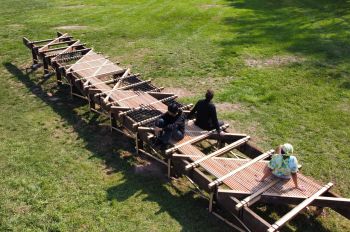Fagel Devotes Career to Emergency Management
When Mike Fagel began his career in 1979, ideas like active shooter, complex coordinated attacks, and domestic terrorism weren’t even on the table. “Before 1995, it was all about severe weather and power outages,” explained Fagel, an IIT Stuart adjunct faculty member who teaches Homeland Security and Emergency Management for the Master of Public Administration program.
Then, the Oklahoma City bombing occurred on April 19, 1995. Fagel was called in to help. When the twin towers at the World Trade Center fell on September 11, 2001, Fagel spent three months working at ground zero. After a gunman opened fire at Northern Illinois University on February 14, 2008, Fagel, again, was part of the team that worked in the aftermath of the tragedy. “If it’s something bad, I’ve usually been there,” said Fagel.
Using nearly four decades of experience in emergency management and emergency operations, Fagel, founder of Aurora Safety, is a top expert in the field and published his fourth book in December 2013. Crisis Management and Emergency Planning: Preparing for Today's Challenges, published by CRC Press, has received praise for discussing advanced emergency management concepts not often covered in other textbooks. Current examples, including the shootings at Sandy Hook Elementary School and the Kenya shopping mall attack, illustrate emerging issues and contemporary scenarios. Pandemic planning and cultural terrorism are also addressed in his newest book.
Fagel brings this wealth of knowledge to IIT Stuart and other universities, where he focuses his passion on training as many people as possible to prevent more tragedies from happening. At IIT Stuart, Fagel teaches PA 597 Special Topics: Emergency Planning for Business, Industry, and Government and PA 538 Cyber & Homeland Security.
“Students can learn from my experiences and make a difference in the future,” said Fagel, who is encouraged by the many types of students who sign up for his courses. “I used to see police officers, firefighters and typical first responders, but now I see a much larger set of filters among my students. Doctors, lawyers, building managers, city managers, people who work in public policy—there’s a broad array of people who benefit from this knowledge base.”
“Students are the future,” said Fagel, with great conviction. “I want them to walk away with as much knowledge as possible and never stop learning.”




